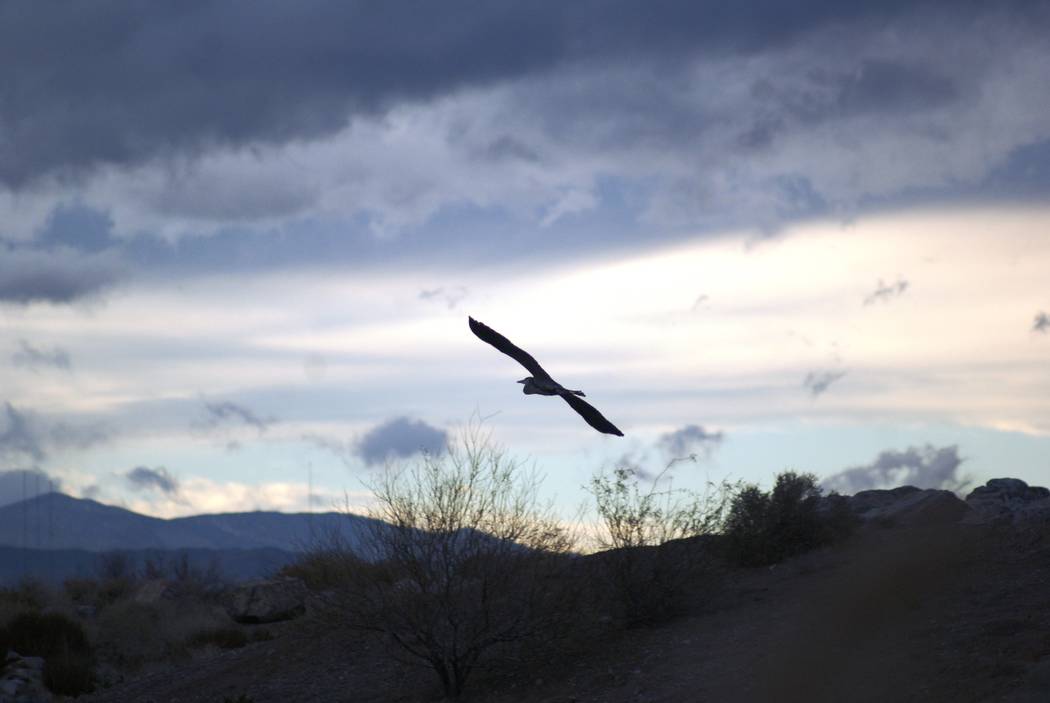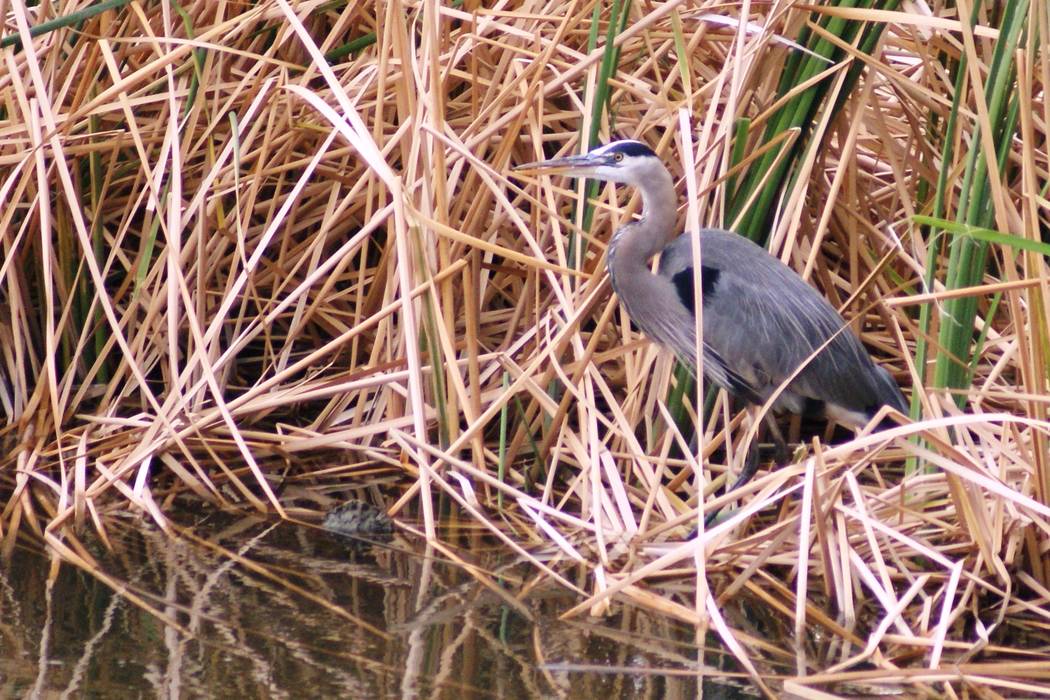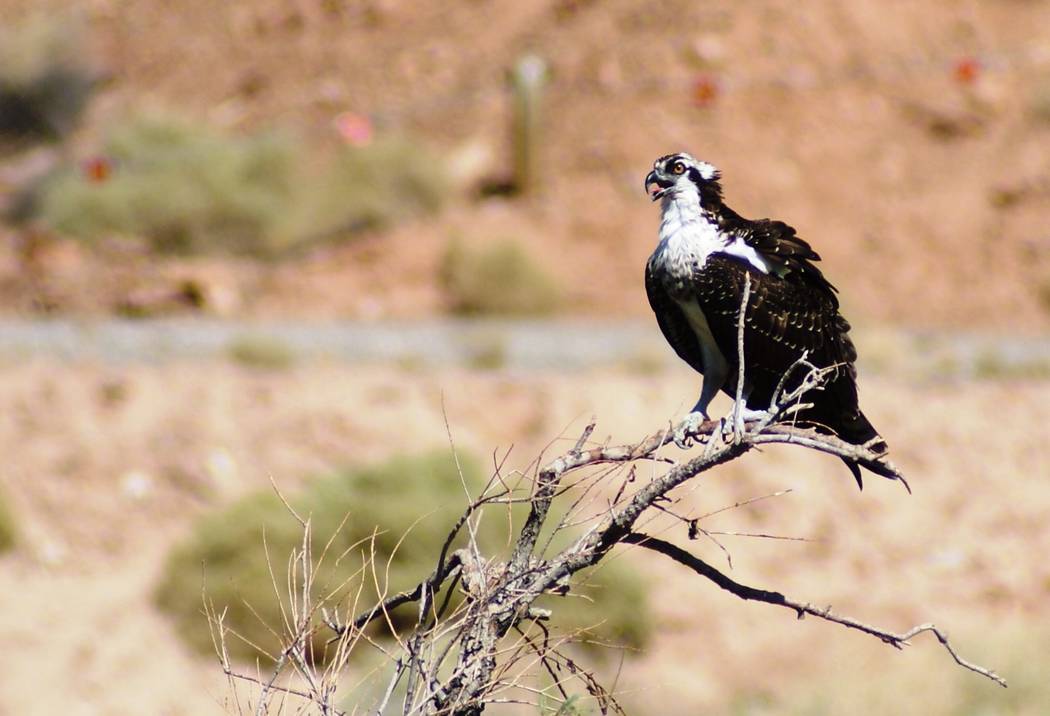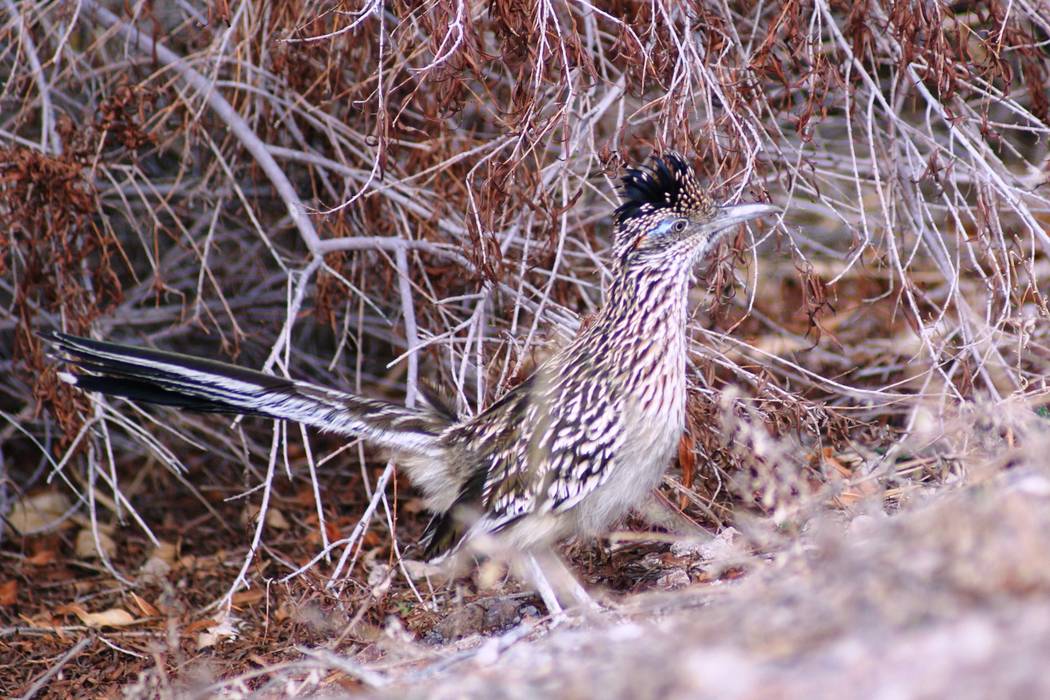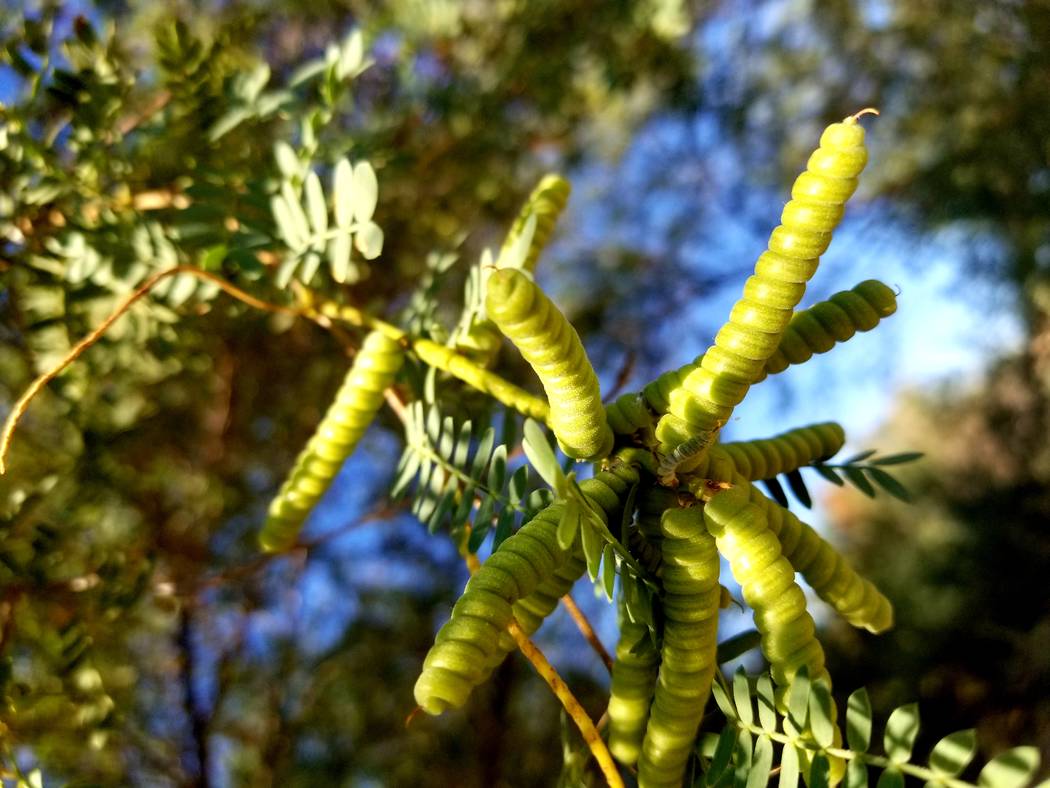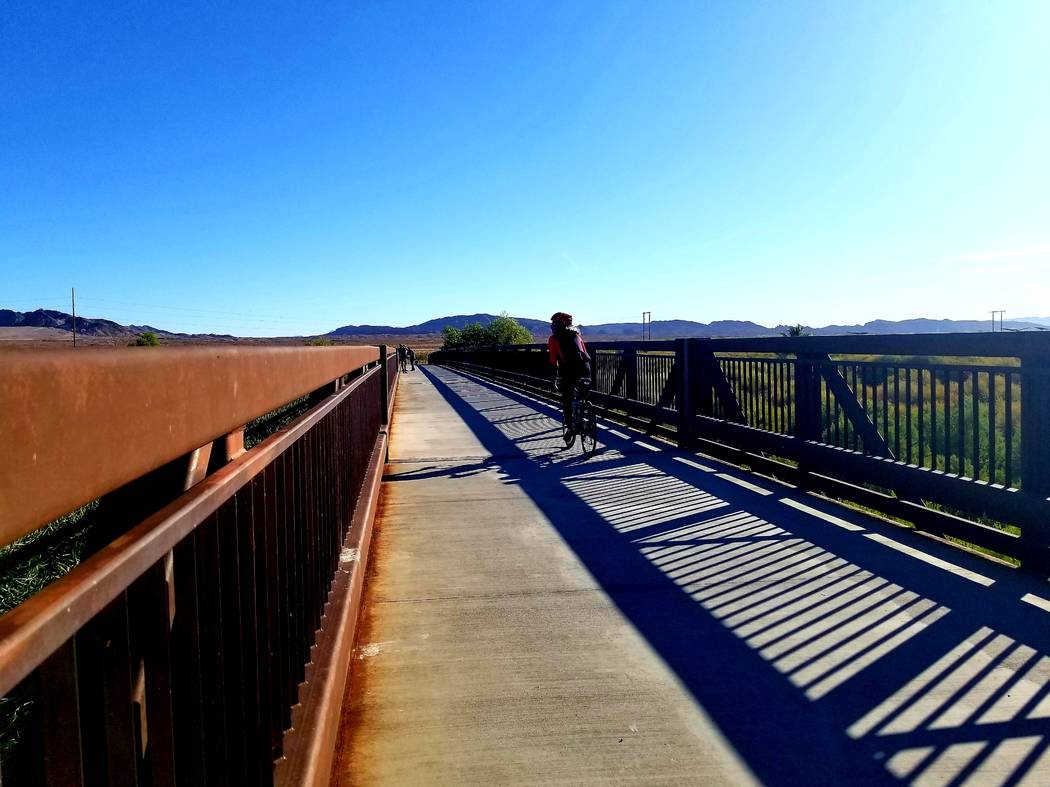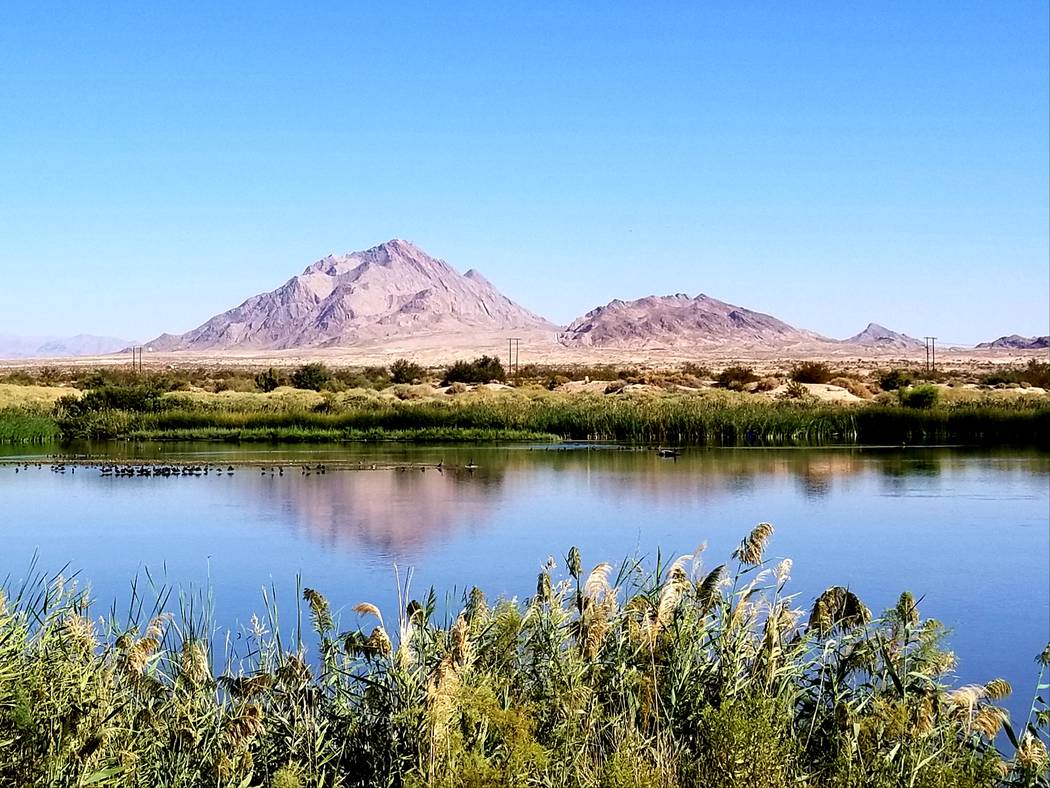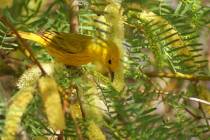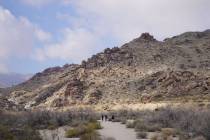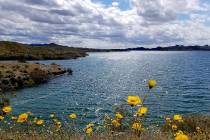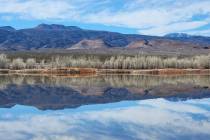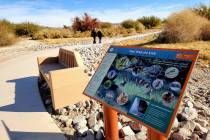Wetlands Park scenery a feast for bicycle riders’ senses
Looking to boost your odds that a coyote or a roadrunner will cross your path? Chances for such encounters increase sharply in a southeast Las Vegas treasure known as Clark County Wetlands Park. Exploring by bike brings added opportunity because more territory can be covered. But any beep-beeps you hear will likely come from fast-paced fellow cyclists, rather than roadrunners, which aren’t loud, purple or blue like in the classic cartoon.
Twice on the 14-mile Wetlands Loop biking trail I’ve encountered greater roadrunners doing what they do best: using their streamlined bodies and rudder-like tails to chase down food on the desert floor. In mid-September, along the path near the Pabco trailhead, a roadrunner with its feathers in dramatic display used jumpy jiujitsu warrior moves when besting a grasshopper.
In the 2,900-acre park that parallels the Las Vegas Wash, roaming coyotes aren’t a rare sight, but my encounters have been from a distance, whether on my bike or walking. The slender, sandy-colored canines usually appear to be on solitary patrols of the park, although my parents once saw a pack of seven close to the park’s main entrance near the eastern end of Tropicana Avenue.
Whether visitors are on the prowl for coyotes, roadrunners, rabbits, wintering ducks, bicycling adventures, scenic walks or a better understanding of the gravity-powered Las Vegas Valley’s water drainage network, Wetlands Park offers insight and exercise. With the wicked desert heat of summer behind us, now is the time to strap bikes on a rack or toss them in the back of a truck and introduce them to the Wetlands Loop.
Several biking-the-Wetlands approaches may be taken. What’s off-limits to bicycles is the most-visited part of the park, the Nature Preserve that fans out from the visitor center. Closed to bicycles are those 210 acres, where miles of walking trails wind past stands of tall cottonwoods, placid ponds and protected habitats for animals including beavers, raccoons, American coots and great horned owls.
Consulting a Wetlands Park biking map is essential beforehand to help get a grip on the complicated lay of the land. Visit bit.ly/2p44lZ7.
A smart spot to start a ride on Wetlands Loop is from Neighborhood Park, which is adjacent to the Nature Preserve and offers access to the paved Monson Trail, which leads riders over the Weir Bridge and onto the north side of Wetlands Loop. The 11 1/2 paved miles of the loop trail also may be accessed via Galleria Drive at Pabco and Wells trailheads as well as Terrazza Park near Lake Las Vegas. A fourth option to get on the south side of Wetlands Loop is from Duck Creek trailhead, although trail conditions there can be challenging, signage is poor and the direction that the main path takes can be confusing. The Duck Creek trailhead allows access to the 2 1/2 unpaved miles of the 14-mile loop.
Although the full loop is 14 miles, there are alternatives for shorter rides full of chances to spot wildlife and to view mountains and the Las Vegas Wash. For instance, a manageable 6-mile option is to park at Pabco trailhead, ride 3 miles along the trail to Terrazza Park and then return to Pabco. That section of the south side of the loop offers excellent overlooks to catch the sunset or glimpse down at details of the green ribbon that’s visible from an airplane upon final descent into McCarran International Airport.
Another possibility is to start at Terrazza Park and take the Powerline Crossing bridge over the wash to access the north side of the loop. Go as far as you desire before turning around to head back to Terrazza Park. Views of the wash aren’t as spectacular on the north side, but the path through creosote scrubland has some thrilling ups and downs and affords riders a sense of disconnection from civilization (always bring extra water and be prepared to fix a flat tire, if needed).
In mid-September, a pair of ospreys fished from high above the plentiful reeds just below the bike trail between Wells trailhead and Terrazza Park. Earlier that day, my husband and I saw 40 white-faced ibises and 50 Canada geese from spots along the unpaved part of the south trail within sight of Sam Boyd Stadium. We rode from Duck Creek trailhead to Terrazza Park.
That day, my bike’s tires and chain got muddy, as runoff on its way from Duck Creek to the Las Vegas Wash trickled through a littered and densely vegetated section of the trail near the area’s remote-control airplane field. The Wetlands Park map offers this advice to bicyclists accessing the unpaved parts of the loop: “use caution, conditions vary.” There’s no official word on when improvements might be made.
Another possibility that may be disarming to some cyclists is running into homeless encampments, as we did when biking toward the Pabco parking lot. The shade and solitude along the Las Vegas Wash, which is considered an urban river because of its continuous flow, has for decades been appealing to homeless Southern Nevadans. Native Americans and early settlers set up homes in the same areas hundreds of years ago, and evidence of their settlements is found on the banks of the wash.
Water in the Mojave Desert, even when it’s urban runoff and treated wastewater flowing toward Lake Mead, is a rarity that makes for pretty pictures of contrasts and creates comfortable homes for critters. Nature offers no guaranteed wildlife sightings, but luck favors anyone biking the Wetlands Loop.
Natalie Burt, a former news reporter at the Review-Journal for 11 years, spends as much of her free time as possible enjoying Southern Nevada’s outdoors. She’s now a teacher and has lived in Henderson for 18 years. Email: nvburt@gmail.com.
Online
For maps and information about Clark County Wetlands parks, visit bit.ly/2p44lZ7 or bit.ly/2og8GZ4. For bike rentals, River Mountains Bike Shop is relatively close to trails connecting to the Wetlands Loop, and information is available at bit.ly/2p6XrSZ.



